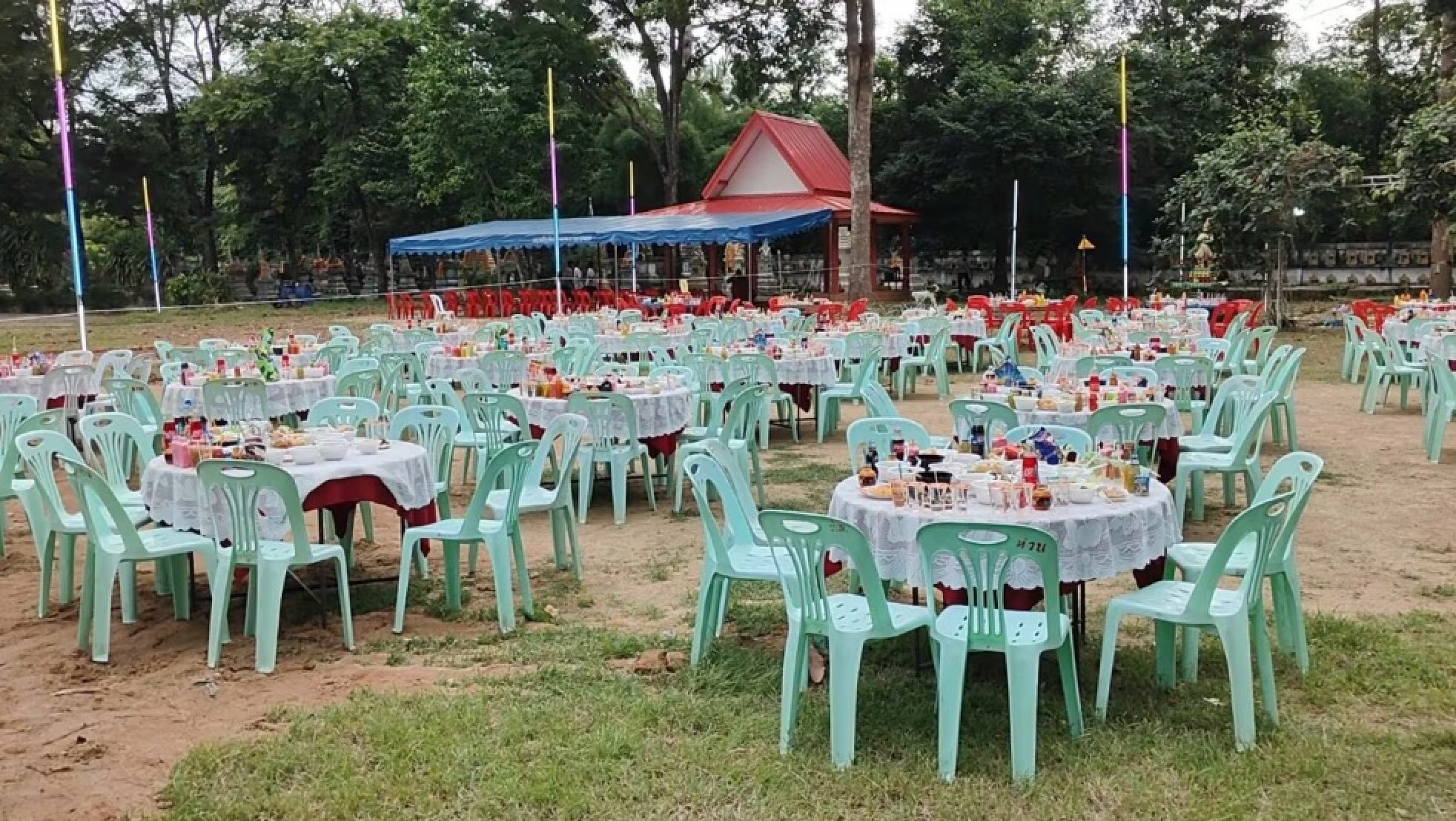
EERIE BANQUET AT THAI CEMETERY OFFERS DELECTABLE FOOD TO NOURISH ‘HUNGRY’ INFANT SPIRITS
- Meticulous table arrangement laid out for 200 banquet 'participants' but chairs for 'little spirits' remain eerily empty
A cemetery in Thailand has prepared a lavish banquet for the "hungry" spirits of infants, drawing widespread attention online.
On July 20, the Chag Phak Kud Temple cemetery in Rayong province, eastern Thailand, held a Chinese-style banquet with 30 tables, according to the Thai media outlet Thaiger.
The meticulously arranged tables were laden with food and drink, while the chairs remained eerily empty.
Do you have questions about the biggest topics and trends from around the world? Get the answers with SCMP Knowledge, our new platform of curated content with explainers, FAQs, analyses and infographics brought to you by our award-winning team.
More than 200 people are buried in the cemetery, including deceased and stillborn infants.
Kritthaphat Takkhet, the deputy chairman of Siam Ruamjai Foundation, which organised the event, said that the mothers of the infants did not normally hold any blessing ceremonies for their children.
This, he said, makes the babies' souls feel "hungry", hence the event.
The banquet featured a variety of Chinese delicacies, including lime-steamed sea bass and sweet egg dumplings, along with 50kg of fresh fruit such as longan and rambutan.
The famous Chinese TV series Journey to the West was also screened to provide entertainment for the spirits.
It tells the adventures of the monk Xuanzang and his disciples as they journey to India to obtain sacred Buddhist texts.
"Hopefully, these hungry infant spirits can find peace after having their fill," one online observer wrote on social media.
"Although the empty chairs make the scene look somewhat eerie, it's a very heartwarming act of kindness," said another.
Organiser Kritthaphat explained that the banquet was part of the Asalha Puja Day celebrations, a key Buddhist festival in Thailand commemorating Buddha's first sermon.
Buddhism is the largest religion in Thailand, with 94.5 per cent of the population practising it, according to the 2015 national census.
Buddhists believe in reincarnation and the afterlife. Many Thais think that after death the soul enters a new cycle of rebirth.
However, if the soul has unfulfilled wishes, like eating or marrying, it may linger among the living.
Providing food and performing good deeds and religious activities for the dead generates positive karma, helping souls achieve a better afterlife.
Also, the spirits feel remembered and respected, which in turn reduces their "interference" with the living.
It is common to see ceremonies for the departed in ethnic Chinese communities across Southeast Asia.
In June, a Chinese cemetery in northeastern Thailand screened films for the dead.
More Articles from SCMP
Xi Jinping wants more young Americans to visit China. Visa-free entry might help
The Games is a time to celebrate sport and have faith in the future
Passengers overcharged on 4 Hong Kong minibus routes for 2 months, authorities reveal
Paris Olympics: Vivian Kong says ‘embarrassment’ drove her to win Hong Kong’s first gold
This article originally appeared on the South China Morning Post (www.scmp.com), the leading news media reporting on China and Asia.
Copyright (c) 2024. South China Morning Post Publishers Ltd. All rights reserved.
2024-07-27T01:20:35Z dg43tfdfdgfd